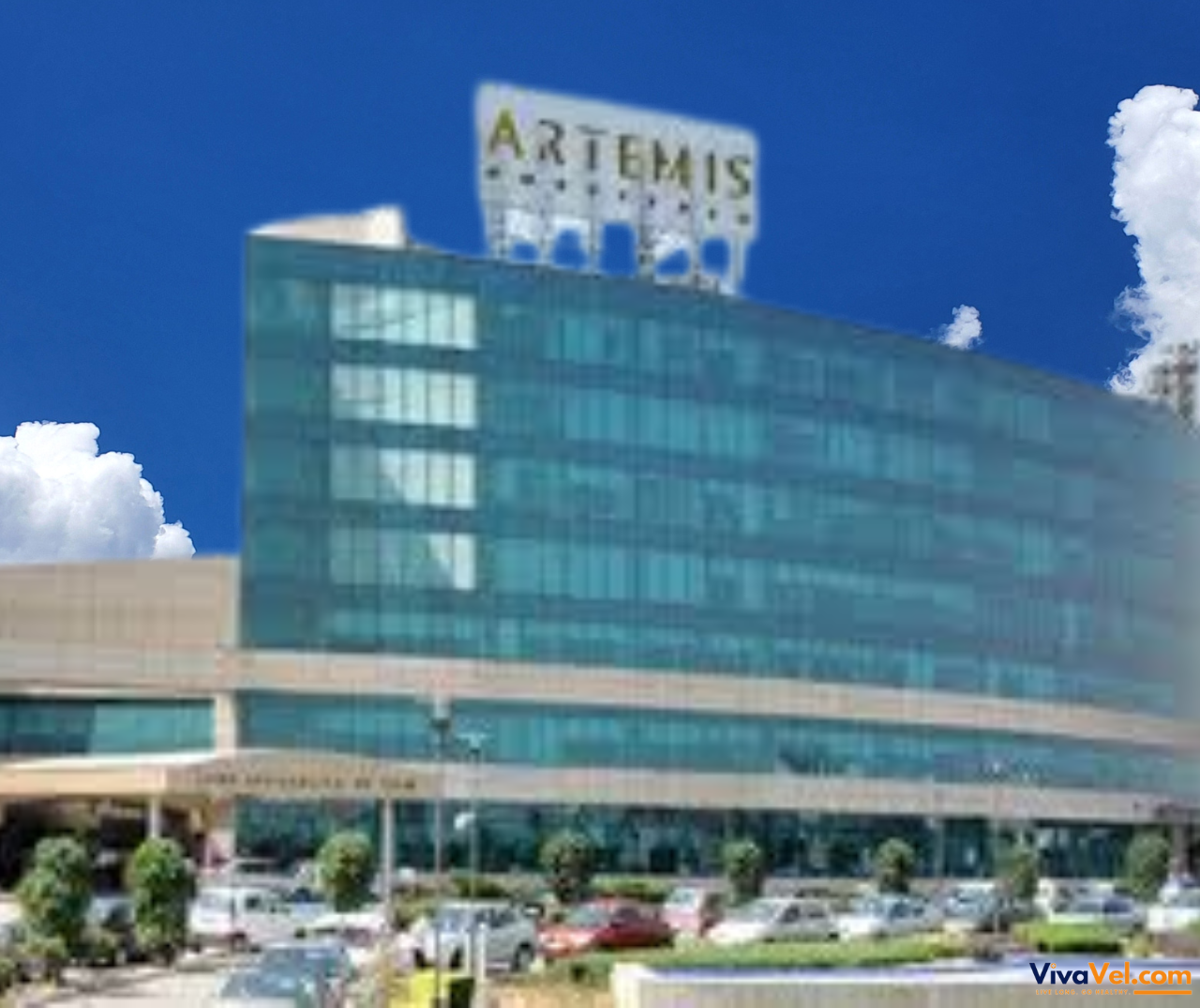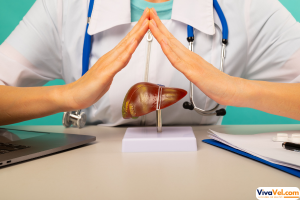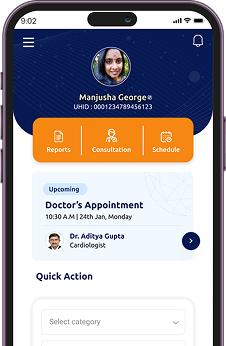About AML Treatment
The treatment package at Artemis Hospital, Gurugram, offers comprehensive care for the patient, including the evaluation and possible allogeneic stem cell transplant based on the initial assessment. The estimated stay in India is around 2-3 months, with an 80% chance of cure. The package covers essential aspects such as room rent, the cost of surgery or treatment, consultation by the primary team during the package period, and basic investigations. The cost varies depending on the type of transplant, ranging from $25,000 to $35,000, with additional charges for chemotherapy if required. Exclusions apply, including extra stays beyond the package days, special consultations, equipment, or additional procedures. A detailed evaluation upon arrival will determine the final treatment plan and associated costs.

Artemis Hospital
Artemis Hospitals Sector 51, Gurugram 122001 Haryana, India
2007
550
Multi Specialty
Address & Nearby Location
 Airport (Indira Gandhi International Airport)
Airport (Indira Gandhi International Airport)
Distance: 21.4 km | Duration: 58 min (by car)
 Railway (Gurgaon railway station)
Railway (Gurgaon railway station)
Distance: 12.7 km | Duration: 31 min (by car)
 Metro (Millenium City Center metro station)
Metro (Millenium City Center metro station)
Distance: 6.2 km | Duration: 17 min (by car)
Taxi: Available on-call
About Doctor

Dr. Gaurav Dixit
Unit Head of Hemato-Oncology
Hematology | Bone Marrow Transplantation | Hemato-Oncology
13 Years Experience | 0 Surgeries & Procedures
Artemis Hospital
Dr. Gaurav Dixit is a highly experienced Hematologist and Bone Marrow Transplant (BMT) Specialist who currently leads the Haemato-Oncology Unit at Artemis Hospital, Gurugram. With over 12 years of expertise in treating blood disorders, leukemia, lymphoma, and bone marrow diseases, he is recognized for his contributions to hematology and oncology. He began his medical journey ...
-
Established in 2007, Artemis Hospital is Gurgaon's first JCI and NABH-accredited Hospital.
-
It is spread across 9 acres and is a 400-plus-bed multi-specialty hospital in Gurgaon, India.
-
Artemis Hospital offers expertise in advanced medical and surgical interventions, and a comprehensive mix of inpatient and outpatient services.
-
It incorporates modern technology in the hands of renowned medical professionals to set new standards in healthcare.
-
The hospital practices and procedures adhere to global standards and are benchmarked against the best in the world.
-
The hospital is known for providing the best services in a warm, open, patient-centric environment, and its affordability contributes to its reputation as one of the best hospitals in the country.
-
Artemis Hospital encompasses a vast expanse of 9 acres and accommodates 550 beds, designed to ensure comprehensive medical care.
-
It has more than 65 ICU beds equipped with a high-frequency ventilator for the NICU, central venous pressure monitoring, intra-aortic balloon pump, PA-pressure monitoring, Ab4 monitoring, FlowTrac, bedside percutaneous tracheostomy, ECHO cardiology, brain hugger, etc., providing cutting-edge care for critically ill patients.
-
It has highly advanced equipment, which is as follows:
-
3 Tesla MRI
-
C7XR Optical coherence tomography
-
Holmium laser 100 watts with morcellator
-
HDR brachytherapy
-
Descemet's stripping endothelial keratoplasty
-
Intraoperative gamma & PET probe
-
Philips FD20/10 cath lab with stent boost technology
-
EnSite velocity cardiac mapping system
-
HIS - PACS enabled bedside patient records and images
-
NIM - ECLIPSE nerve monitoring system
-
Total knee replacement - navigation system
-
Transesophageal echocardiography (TEE)
-
Laser for TURP/MLS
-
Laser hair reduction (Pain-Free)
-
Cavitron ultrasonic surgical aspirator (CUSA)
-
M6 Cyberknife radiosurgery
-
-
Artemis Hospital leverages cutting-edge Da Vinci robotic surgery to perform a wide range of advanced robotic-assisted laparoscopic procedures for urology, urologic oncology, colorectal surgery, thoracic surgery, general surgery, and gynecologic surgery.
-
In addition, the hospital is committed to ensuring patient comfort by providing fully air-conditioned facilities and Wi-Fi-enabled rooms. It offers 24/7 emergency services with dedicated emergency rooms and air ambulances.
-
Hospital stay as per package duration
-
Procedure/surgery costs
-
Consultation by the primary doctor
-
Basic investigations
-
Personalized care and assistance
- Additional hospital stay beyond the package duration
- Consultations with other specialties (if required)
- Special equipment or additional procedures/surgeries
- Registry charges for matched unrelated donor transplant
- We understand that a comfortable stay is vital in the healing process. That’s why we offer a range of accommodation options to suit different preferences and budgets. Patients and their families can choose from hospital guest houses, well-rated hotels, or fully serviced apartments, all conveniently located near Artemis Hospital for easy access to medical care.
- For those seeking budget-friendly options, we have economical stays that offer essential amenities, while premium accommodations provide a more luxurious experience with additional services. Our team assists in booking and selecting the most suitable lodging based on your needs.
- For long-term stays, we can arrange accommodations with kitchenettes and caregiver support to ensure a smooth and stress-free recovery journey.
Day 1: Arrival in India
-
Meet and greet at Indira Gandhi International Airport, New Delhi
-
Private transfer to hotel or hospital guest accommodation
-
Rest and acclimatization
Day 2: Initial Consultation & Evaluation
-
Transfer to Artemis Hospital, Gurugram
-
Registration and patient onboarding
-
Initial consultation with the primary medical team
-
Comprehensive medical evaluation, including necessary tests and assessments
-
Discussion of treatment plan, including stem cell transplant evaluation
Day 3-7: Pre-Treatment Phase
-
Additional diagnostic tests, if required
-
Specialist consultations as per the treatment plan
-
Preparation for stem cell transplant (if applicable)
-
Counseling sessions for patients and caregivers
Week 2-6: Treatment Phase
-
Hospital admission as per the treatment package
-
Stem cell transplant or other required procedures
-
Chemotherapy sessions (if required, additional charges may apply)
-
Continuous monitoring and support by medical experts
-
Rehabilitation and physiotherapy (if needed)
Week 7-10: Recovery & Post-Treatment Care
-
Post-operative assessments and follow-up consultations
-
Recovery and observation for transplant success
-
Adjustments to medications and treatment as needed
-
Psychological and nutritional counseling
-
Discussion on post-treatment care and home management
Week 11-12: Final Evaluation & Departure Preparation
-
Final medical review and clearance for travel
-
Comprehensive discharge summary and follow-up guidelines
-
Assistance with travel arrangements and airport transfer
Additional Services Available:
-
Assistance with visa and travel documentation
-
Language interpretation services
-
Hotel accommodation for family members
-
Local transportation and guided tours for accompanying guests
-
24/7 customer support during the stay
Acute Myeloid leukemia (AML) is a cancer that affects the blood and bone marrow. The disease starts in the bone marrow, where blood cells are made, and results in the production of abnormal white blood cells. These cells crowd out healthy blood cells, leading to various health issues.
Acute Myeloid Leukemia (AML) is a rare but aggressive form of leukemia that primarily affects older adults, though it can occur at any age. Early diagnosis and treatment are essential due to the rapid progression of the disease.
 Signs and Symptoms of AML:
Signs and Symptoms of AML:
- Fatigue and Weakness: Chronic tiredness, insufficient power, and difficulty breathing associated with anemia are frequently observed.
- Frequent Infections: Lack of healthy white blood cells causes high infection susceptibility.
- Bleeding: Frequent nosebleeds and bleeding gums are common.
- Bone and Joint Pain: Pain or discomfort in bones or joints may arise from overcrowded bone marrow.
- Unexplained Weight Loss: Rapid weight loss without any change in diet.
 AML generally results from genetic mutations in bone marrow cells, although the exact causes are often unknown. These mutations may cause cells to proliferate abnormally, affecting healthy blood cells. Some causes and contributing factors include:
AML generally results from genetic mutations in bone marrow cells, although the exact causes are often unknown. These mutations may cause cells to proliferate abnormally, affecting healthy blood cells. Some causes and contributing factors include:
- Genetic Predisposition: Family history of blood disorders or leukemia.
- Environmental Exposures: Exposure to certain chemicals like benzene and radiation can increase AML risk.
- Previous Cancer Treatments: Certain chemotherapy drugs or radiation therapies for other cancers can raise AML risk later in life.
 Seek Medical Attention if you experience:
Seek Medical Attention if you experience:
- Sudden Fatigue: If fatigue is accompanied by other symptoms such as fever or infections.
- Persistent Fever or Infections: Especially if resistant to antibiotics or common treatments.
- Unexplained Bruising and Bleeding: If bleeding occurs frequently or without known cause.
- Weight Loss and Pain: Rapid, unexplained weight loss or ongoing joint pain should prompt medical evaluation.
 Risk Factors for Acute Myeloid Leukemia:
Risk Factors for Acute Myeloid Leukemia:
- Age: AML is more common in older adults.
- Gender: Men are more likely to develop AML than women.
- Previous cancer treatment: Some chemotherapy drugs can increase the risk of AML.
- Exposure to chemicals: Long-term exposure to chemicals like benzene (found in cigarette smoke) may raise the risk.
- Genetic disorders: Conditions like Down syndrome can increase the likelihood of AML.
- Smoking: Tobacco use is a significant risk factor.
- Family history of blood disorders: A family history of leukemia or related diseases can raise the risk.
 To diagnose AML, a doctor may perform the following tests:
To diagnose AML, a doctor may perform the following tests:
- Complete Blood Count (CBC): Measures the red, white, and platelet cell levels.
- Bone Marrow Biopsy: A sample of bone marrow is taken to look for cancerous cells.
- Cytogenetic Analysis: A test to detect genetic abnormalities in the leukemia cells.
- Immunophenotyping: Determines the type of leukemia cells present.
- Flow Cytometry: Helps identify abnormal cells by testing their surface proteins.
 Treatment for AML includes several approaches that aim to destroy leukemia cells, prevent relapse, and restore healthy cell production. Primary treatment options include:
Treatment for AML includes several approaches that aim to destroy leukemia cells, prevent relapse, and restore healthy cell production. Primary treatment options include:
- Induction Therapy
- Purpose: To achieve remission by reducing the number of leukemia cells.
- Chemotherapy: The mainstay of induction therapy, usually involving a combination of drugs (e.g., cytarabine and anthracycline).
- Consolidation Therapy
- Purpose: To prevent relapse by targeting residual leukemia cells post-induction.
- Chemotherapy/Stem Cell Transplant: High-dose chemotherapy or stem cell transplantation may follow to increase survival chances.
- Targeted Therapy
- Purpose: Attacks specific genetic mutations within leukemia cells.
- Common Drugs: Midostaurin (for FLT3 mutations), Enasidenib (for IDH2 mutations).
- Stem Cell Transplantation
- Purpose: Replaces damaged bone marrow with healthy cells, often after high-dose chemotherapy.
- Types: Allogeneic (from a donor) or autologous (patient’s cells).
- Supportive Care
- Antibiotics and Antifungals: To prevent infections due to low white blood cells.
- Transfusions: Red blood cell or platelet transfusions to treat anemia or bleeding.
- Growth Factors: To encourage white blood cell production and reduce infection risk.
 Do's:
Do's:
- Follow your treatment plan as prescribed by your doctor.
- Maintain good hygiene to reduce the risk of infection.
- Eat a balanced diet to help your body heal and stay strong.
- Stay hydrated by drinking plenty of fluids.
- Communicate openly with your healthcare team about any side effects or concerns.
- Practice gentle exercises (as advised) to keep your body active.
 Don'ts:
Don'ts:
- Don't ignore new or worsening symptoms; report them to your doctor immediately.
- Don't skip medical appointments or tests, as they are essential for monitoring your progress.
- Avoid crowded places during treatment to reduce infection risk.
- Avoid raw or undercooked foods, as they may contain bacteria that could make you sick.
- Don't smoke or drink alcohol, as they can interfere with your recovery.

















